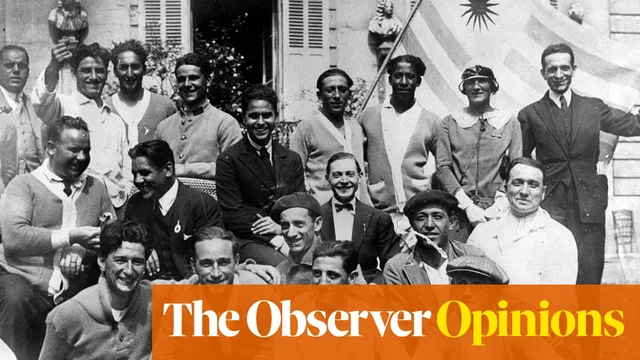
1924 Paris Olympics: A Landmark for Football and Cultural Icons
2024-07-27 00:00- The 1924 Paris Olympics featured footballer Andrade, known as the Black Pearl.
- His performances captivated audiences, blending sports with cultural expressions like tango and jazz.
- Uruguay's role in the Olympics marked a significant milestone in its sporting history.
Express your sentiment!
Insights
The 1924 Paris Olympic Games were marked by the remarkable achievements of athletes like Finnish runner Paavo Nurmi, who secured five gold medals, and swimmer Johnny Weissmuller, who won three golds before becoming famous for his role as Tarzan. However, the tournament's standout figure was Uruguayan footballer José Andrade, who not only showcased his exceptional skills but also represented a significant cultural moment as one of the few black athletes in the competition. Andrade's presence was pivotal in the first Olympic football tournament to include teams from both Europe and the Americas, elevating the sport's popularity. His unique playing style, characterized by agility and a keen understanding of space, earned him the nickname "the marvellous and black half-back." The media's portrayal of Andrade highlighted the racial dynamics of the time, with L’Auto referring to him as the "Black Pearl," a title that resonated with the Parisian avant-garde, who were captivated by modernism. The atmosphere surrounding the Uruguayan team was vibrant, with Andrade becoming a symbol of cultural fusion. His interactions with figures like jazz singer Josephine Baker underscored the era's artistic spirit. Meanwhile, the competition itself saw Uruguay face Switzerland in the final, with commentators praising their modern approach to the game, contrasting it with the more traditional English style. Ultimately, the 1924 Olympics not only showcased athletic prowess but also opened doors to new cultural narratives, with Andrade emerging as a pioneering figure in both sports and society, leaving a lasting legacy as the first modern football superstar.
Contexts
As Paris prepares for the 2024 Summer Olympics, excitement builds in the city. Nike's Athlete House is established to support Team USA athletes, enhancing the overall experience during the prestigious event. The Tokyo 2020 Games set high expectations, and as the Olympic torch approaches Paris, anticipation for remarkable athletic achievements grows. However, the organizers have faced scrutiny over a controversial opening ceremony performance featuring an LGBTQ+ icon and drag artists, leading to an apology to clarify that it was not intended to depict 'The Last Supper' (July 28, 2024). This incident has reignited discussions about inclusivity and representation within international events. Other controversies include a performance by a French entertainer dressed as a blue-tinged Greek god, which has sparked debates about the boundaries of performance art (July 28, 2024). Amidst the celebrations, music plays a vital role in bringing energy and unity to the games, echoing the cultural heritage of Paris (July 28, 2024). Notable athletic performances have also emerged, including American swimmers winning gold and silver in the 100m butterfly, and the challenges faced by gymnast Jade Carey after a fall during qualifiers (July 28, 2024). Additionally, the participation of Palestinian athletes highlights resilience and hope amidst hardship, further contributing to the Olympics' narrative of unity and athletic excellence. Fans eagerly anticipate the return of iconic gymnast Simone Biles, known for her extraordinary talent, as she prepares to compete (July 28, 2024).